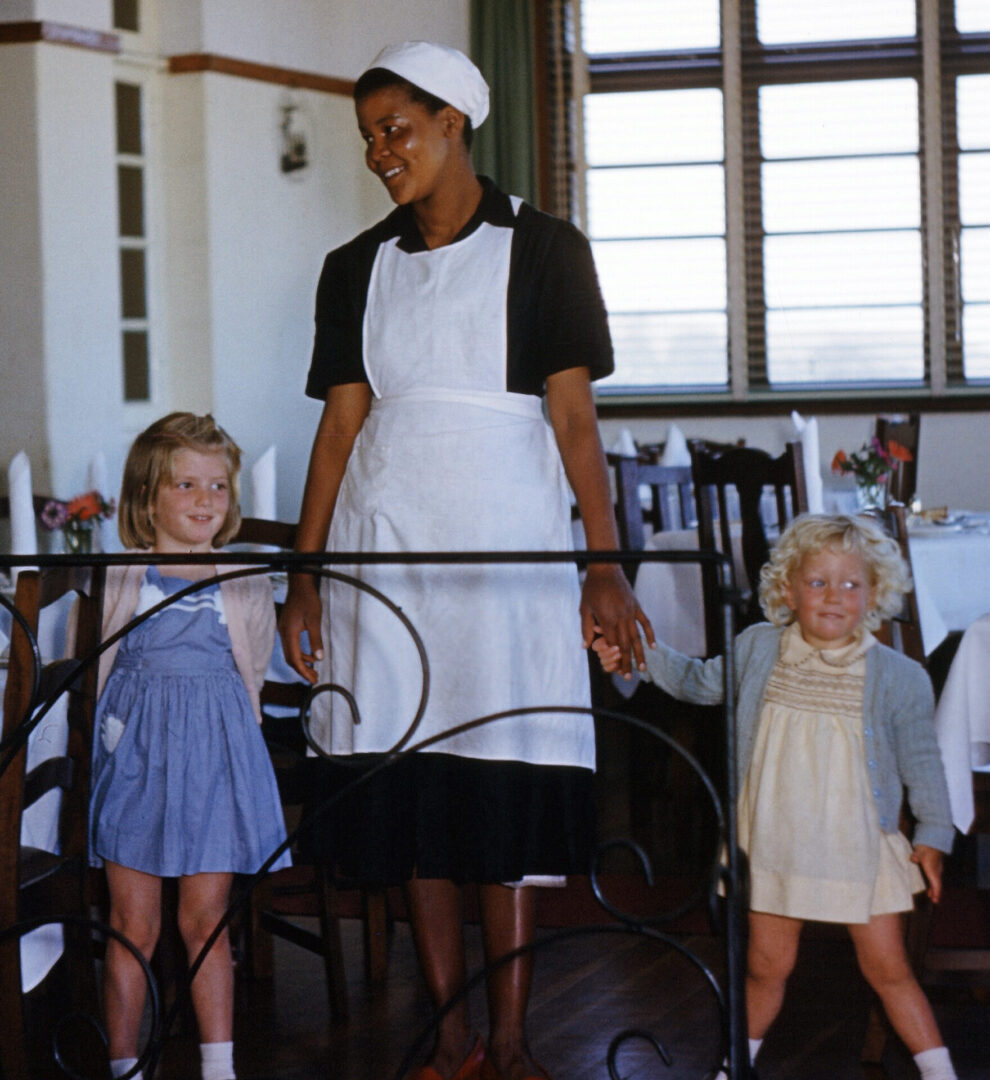How often I’ve had friends exclaim, “Oh, how simply marvelous to have servants all the time you lived abroad.” “Don’t you hate it when you have to return to the States and do without servants?” “Imagine having servants twenty-four hours a day and so cheap!” “Servants must be the nicest thing about living overseas.”
Anyone who has lived abroad and who has actually set up housekeeping, can testify that it just “ain’t so.” Oh, it’s true that servants are easily available and cheap in comparison to the going rate in the United States. Actually, a good servant can be of tremendous help in shopping and helping the newcomer learn his way around and be advised. What is so is that servants are the most difficult thing to adjust to when living in a foreign country. Perhaps not for those few who have been ‘army brats’ or raised in diplomatic families, but for the typical American housewife it is a pretty big adjustment.
To be completely fair, let me list first some of the advantages of having maids or servants overseas.
1. Someone to do the dishes.
2. If you’re lucky, someone to cook.
3. Someone to clean house and make beds.
4. Someone to do the marketing or accompany you (a real advantage in some foreign countries).
5. Probably the most important for those with a small fry is a babysitter, a real built-in one, too. One the child gets to know well and considers a second mother. They must be good, kind and loving.
Now, consider the disadvantages in relation to the above.
1. You will find that people the world over who have worked for the U.S. housewife think we are completely crazy for using hot water, soap, and any method other than dumping the last along with scraps in one big basin and drying with a questionably un-white towel. There is also nothing known as a dish drying rack.
2. Of course, unless they have worked for other patient Americans, they can’t cook American food. “Fine,” you say, “I’ll eat the native food.” Well, that just depends on where you happen to be. It’s good once in a while, but day in and day out for 365 days a year (name some native foods here). Don’t depend on their ability to make a cake or other fine cooking. Their ideas on the measurements are quite different from ours.
3. Another big difference is in their method and ours (name various ways, i.e. waxing in South Africa, mopping in Colombia, etc.). Too, you will find few maids who do a bed in the American manner (mention bed bugs here also, in the best of homes).
4. A big help, unless they take this day also to do a little extra visiting and shopping, pilfering your funds, padding the expense account, so to speak.
5. Some of these people make excellent nursemaids, but most American mothers overseas are so delighted with this idea that they ‘abandon’ child and become bridge fanatics or splurge their sudden free time that the child becomes more attached to the nanny or “niñera” that they soon prefer them to Mommy. Then, about that time the girl quits for another job, and it is like a death in the family. The child won’t have a thing to do with the new nurse while Mommy has to give up social activities, etc. There are also a few revelations soon to appear to the mother in that the nurse scared the child with boogie stories, fed him lollipops for breakfast and ice cream for lunch, spanked him for wetting his pants and bribed him to go to sleep. The list could be much longer. Danger. (I am not including English nannies in this, for I think they are probably better than most of the mothers whose children they raise.)
In the seven years we lived in South Africa, we had a total of six servants. Two of those we had for the total time, with the exception for one year when the young woman had a baby and took it to her home until it was old enough to leave with her mother. For four years we got along with these two, a Zulu ‘boy’ and a Sesutu ‘girl’. Then we moved to a larger house and grounds, and we found we needed two more servants, another ‘boy’ and ‘girl’. The boy to help keep the huge two-acre garden, and the ‘girl’ meant to cook, keep the coal cook stove (outside) going and never to go out (The old Zulu did this from the other house.). We hired a servant from Mozambique who spoke another native language, as well as Portuguese and English.
When people ask, “What is the best thing about living overseas?”, I might easily answer “Servants”. On the other hand, when asked, “What is the hardest thing about living abroad?”, I would probably reply “Servants!”
It is foolish for those going overseas for the first time to live to flatly state, “I don’t have servants in the Sates, and I’m not having them in Pakistan (or Chile or England, etc.). For the newcomer to a strange country, a servant can be of more help than H.V. Morton’s series: In Search of... travel books. For instance, in many countries, a cook’s job is to do the marketing. She may pocket a bit of change here and there, and take all morning to do it, but she will do it faster than you can, be more selective, and get a better bargain.

Grace with Jan and Peggy at Victoria Falls Hotel, Rhodesia (1955)
